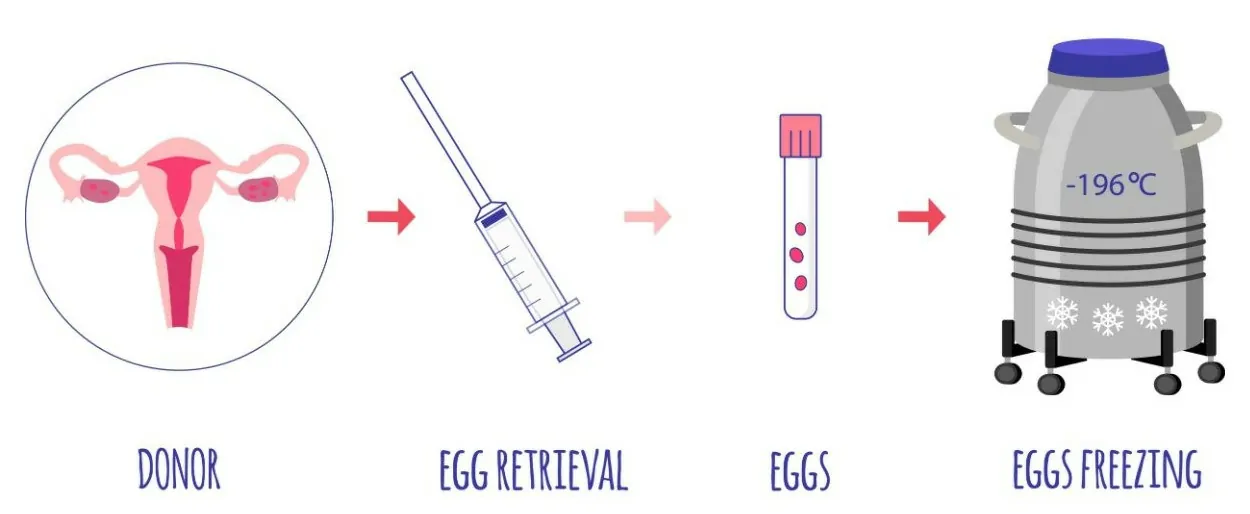

Egg freezing, also referred to as Oocyte cryopreservation, involves the extraction, freezing, and storage of a woman's eggs (oocytes). When she decides to embark on the journey of motherhood, these preserved eggs can be thawed, fertilized, and then transferred to the uterus as embryos.
Every woman harbours aspirations to achieve various milestones in life, be it pursuing advanced degrees, establishing a successful career, or indulging in personal hobbies. With an array of opportunities available, an increasing number of women are opting to delay starting their families. However, the choice to delay family planning often poses challenges, as fertility diminishes with age. By the age of 40, a woman's chance of natural conception drops to a mere five percent due to both the quantity and quality decline of eggs.
Benefits of Egg Freezing
The process of egg freezing empowers women to preserve their eggs for future use, enabling them to initiate family planning at a later stage. Through egg freezing, a woman can collect eggs retrieved during her younger years and safeguard them. When the time comes to start a family, she can utilize these preserved, youthful eggs to enhance the likelihood of a successful pregnancy. This alleviates the concern associated with the "biological clock," offering women the flexibility and assurance to embark on parenthood when the time is right for them.
Significance of the Egg
The woman's age significantly impacts her fertility, especially concerning the quality of her eggs. Quality tends to decline notably after the age of 35, and after reaching 42, achieving a successful pregnancy becomes challenging. According to medical experts, it is advisable for women to contemplate freezing their eggs before turning 30, offering them optimal prospects for future successful treatments. Numerous studies indicate that women using eggs donated by younger individuals can attain pregnancy success rates comparable to those in their 20s. Egg freezing thus offers women the opportunity to act as their own donors, preserving eggs through cryopreservation technology. Storing eggs substantially enhances the likelihood of achieving a successful pregnancy later in life.
The best candidate for Egg freezing as
Freezing eggs can offer numerous advantages to women desiring to safeguard their fertility for the future, encompassing individuals such as those undergoing cancer treatment, women aged between 18-40, and those dealing with conditions like endometriosis, early menopause, or premature ovarian failure.
The Commitment about Frozen Eggs & Success Rates
The process of egg freezing is relatively recent, yet there is a growing trend of women choosing this option. At Hope Fertility Bank, success rates with frozen eggs reach as high as 50 percent. Collaborating with our partner fertility clinics, the pregnancy rates achieved with frozen eggs closely mirror our success rates with fresh IVF procedures. Additionally, babies born from frozen eggs exhibit comparable health and do not face an elevated risk of birth defects compared to naturally conceived babies. If you are considering the option of storing your eggs, we encourage you to reach out by completing the form provided below.
